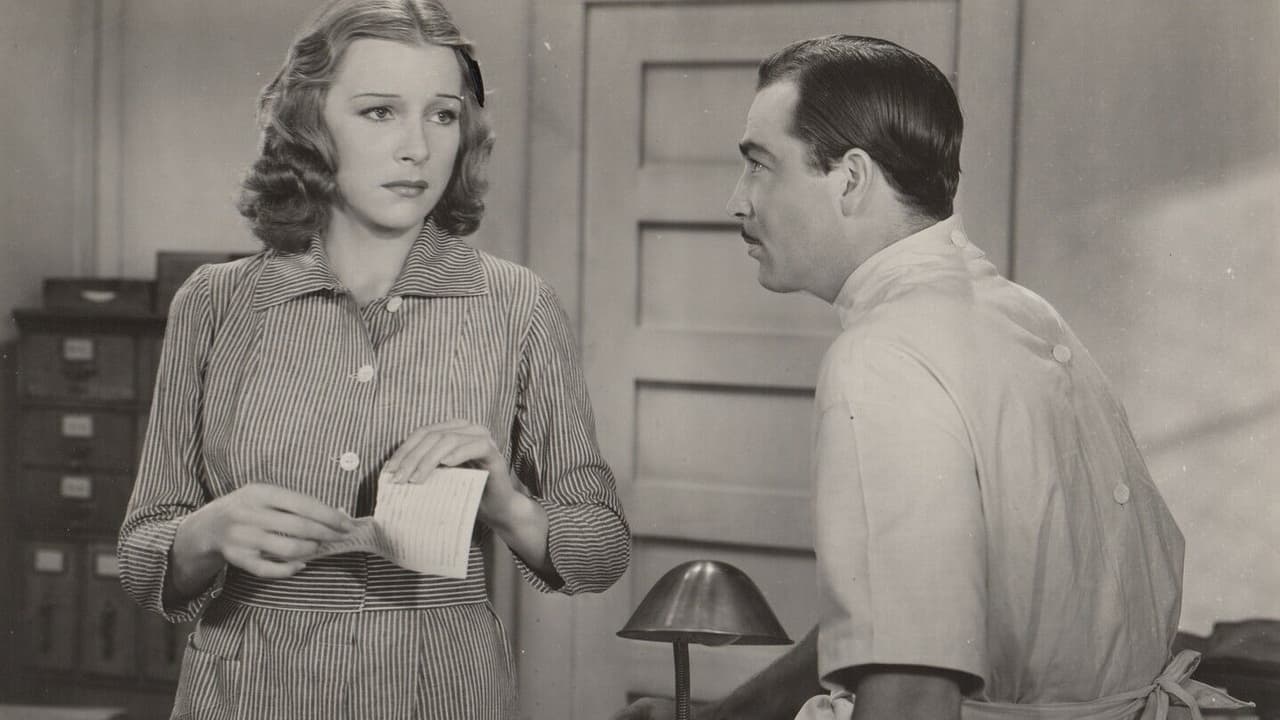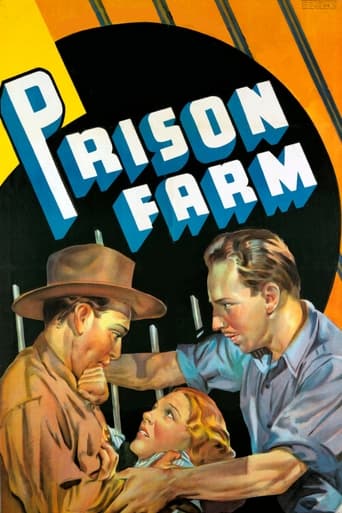Alonzo Church
Lloyd Nolan is a guy who wants to bring his girlfriend the finer things in life without working too hard. But his scheme begins to unravel when he socks a corrupt cop making the moves on his girl, and gets both himself and his girl Shirley Ross sentenced to six months at the county PRISON FARM. Will Shirley find true love with the kindly prison doctor, or can his relationship with Lloyd survive his criminal instincts? This is a not bad Warners style movie which packs in a lot of plot in a short running time. Shirley Ross puts in a nice performance as a good girl being slowly embittered by the parade of bad luck the movie flings at her. Nolan's performance is interesting, if a little perplexing. Nolan is playing for sympathy, but his role is decidedly unsympathetic. Other performances are neither good nor bad -- just rather typical. Viisually, the movie is more efficient with brilliant, but there is an impressive laundry room riot in the women's side of the prison farm about half way through the movie.All in all, a good solid movie. If it had been made in the Bryan Foy unit at Warners, it would have featured Bogart and Ann Sheriden, and be a lot better known through constant showings on Turner Classic Movies
lugonian
PRISON FARM (Paramount, 1938), directed by Louis King, is a well made little programmer featuring an assortment of Paramount contract players doing what they do best. Star billing goes to Shirley Ross, popular singer of several light musical comedies of the time, most notable for her duet with Bob Hope to "Thanks for the Memory" from THE BIG BROADCAST OF 1938 (1938). She's surprisingly effective in a rare dramatic performance. No singing this time around, and for her on-screen character, no memories to be thankful for either. Not surprisingly, however, is Lloyd Nolan, whose variety of roles during the late 1930s kept him busy, ranging from heroes in one film to villains the next. His career somewhat paralleled movie tough guy Humphrey Bogart at Warners, with the exception that Bogey became legendary while Nolan remains a memory of numerous, now forgotten second features along with guest spots on television shows in later years. Best known for his supporting role as Officer McShane in A TREE GROWS IN BROOKLYN (20th-Fox, 1945), his earlier screen performances under the Paramount banner are quite interesting as well. As for PRISON FARM, Nolan plays the bad guy this time around, with the focus centering upon Ross's character, a victim of circumstance, somewhat similar in parts to Paramount's earlier prison offering, MARY BURNS, FUGITIVE (1935) with Sylvia Sidney as the good girl and Alan Baxter as the man, unbeknowst to her, a wanted gangster.For the plot summary, Jean Forrest (Shirley Ross) is a young girl who's in love with Larry Harrison (Lloyd Nolan), but unaware of his criminal past. He's wanted for the robbery of a payroll truck and the murder of its driver. On their way to get married, they are caught and arrested following an attempted robbery, with Jean as accessory. In order to avoid a much stricter sentence for the more serious crime, Larry is advised to serve a six month sentence, taking Jean, convicted for complicity, with him to a co-ed prison camp where they are locked up in separate buildings. The men do outside work while the women do laundry and other chores. While there, Jean witnesses the cruelties of her fellow inmates, including "Shifty Sue"(May Boley), a tough cell-mate whom she has befriended, and surrounded by Cora Waxley (Esther Dale), a cruel matron; Matron Brant, (Marjorie Main), a sadistic guard; and Matron Ames (Anna Q. Nilsson) hated by other prisoners for being an informer who secretly notifies authorities of any wrongdoings to her superiors. Jean is brought to the attention of Roi Conrad (John Howard), a prison doctor, who at first believes him to be just as cruel like the rest, not giving him the satisfaction, but in time comes to realize his sincerity. As for Larry, he is under the stricter guidance from Chiston Bradby, (Porter Hall), a corrupt warden; Noel Haskins (J. Carroll Naish), a sadistic guard, but mixes well with other convict toughs, especially those planning their escape. With much more to follow, the result is quite satisfactory. The moral lesson to the story, especially from the central character's point of view, is to obtain a resume and letters of recommendation before getting further involved with guy intended to make a prospect husband.With prison films becoming one of Hollywood's more stable products throughout most of the 1930s, PRISON FARM has many of the ingredients needed to keep any interested viewer from crashing out of the movie theater or TV room. There's no time wasted for dragged out scenes slowing down the pace during its 64 minutes of screen time, which indicates how better constructed a programmer is in regards to a 90 minute plus "A" production. What used to be frequently shown on commercial television during the 1960s and 1970s (WPIX, Channel 11, in New York City) is not so anymore. Had PRISON FARM been a Warner Brothers release, obviously it would have found its way to a new audience on Turner Classic Movies, where much of the Warners, MGM, RKO, and some from other studios are played. As it now stands, it seems unlikely that PRISON FARM would resurface from the vaults from where this, and other fine little Paramount crime dramas, remain. (**1/2)

